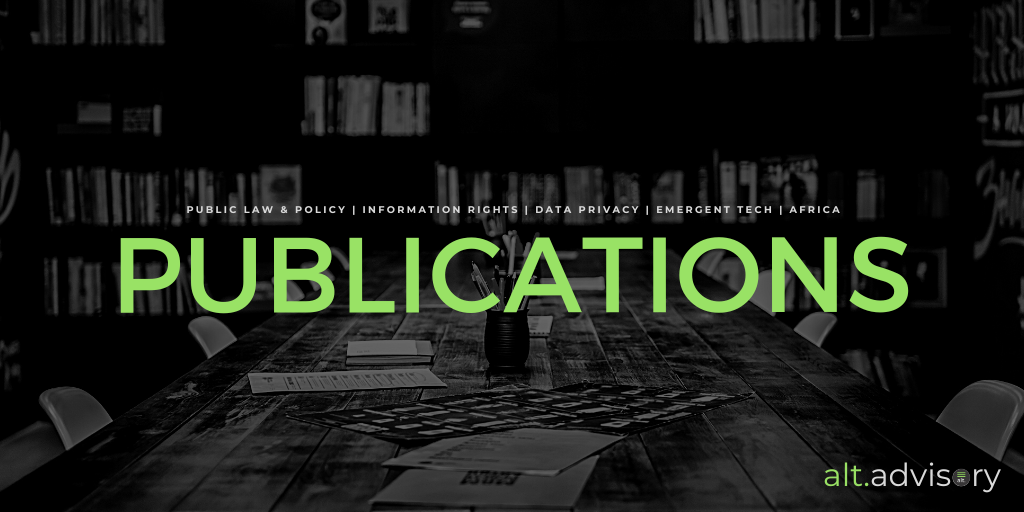Making ICT Policy in Africa: An Introductory Handbook
- The Making ICT Policy in African: An Introductory Handbook was developed for fesmedia Africa to facilitate and contribute to ongoing efforts towards the development of ICT policies in Africa and it seeks to enable a greater number of citizens to participate in this important endeavour.
- It provides a detailed explanation of ICT policy, why ICT policy matters and guiding principles for ICT policy drafting.
Overview
The Making ICT Policy in African: An Introductory Handbook was developed by fesmedia Africa to facilitate and contribute to ongoing efforts towards the development of ICT policies in Africa and it seeks to enable a greater number of citizens to participate in this important endeavour. It provides a detailed explanation of ICT policy, why ICT policy matters and guiding principles for ICT policy drafting. It is a reader friendly, easy-to-follow introductory guide to ICT policymaking in Africa, based on in-depth analysis of the impact of ICT on the continent and the need for principles to guide its development, deployment and use. The handbook provides users with overarching principles, good practices and strategies that can be applied in different contexts. It includes a knowledge check and is well cited, which makes it valuable as a training resource.
The Handbook is structured as follows:
Chapter 1: Governance frameworks and why they matter outlines a conceptual understanding of what constitutes ICT policy. It distinguishes between different legal instruments and how they interact to form the ICT governance framework. It further provides an overview of the main imperatives driving ICT policy development.
Chapter 2: The digital ecosystem introduces the layer model of the internet to frame a conceptual understanding of the digital ecosystem. It provides a conceptual understanding of what functions and relationships ICT policies typically govern, as well as identifies which key role players are involved in the development of ICT policy and their respective and inter-related functions.
Chapter 3: Rights affected by ICT policy-making sets out which rights are most directly impacted by ICT policies and how. It considers the public international law implications for how ICT governance frameworks are developed. It reflects on some of the most significant legal challenges and debates concerning human rights and the internet. Lastly, it considers some existing principles and instruments for how domestic and public international law has been applied to selected ICT governance and human rights problems in Africa.
Chapter 4: ICT policies in practice offers an overview of the guiding principles underpinning the ICT development process – from formulation to implementation. It outlines and describes the most significant steps in the ICT policy-making cycle. It draws on the lessons learned in policy development processes in various countries in the region and further abroad, providing comparative analyses and good practice guidelines, with particular reference to African examples.
The Handbook was prepared by Michael Power and Avani Singh, and it was edited by Sekoetlane Phamodi.
Download the Handbook (4mb).




